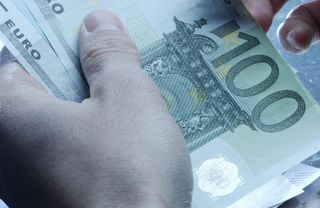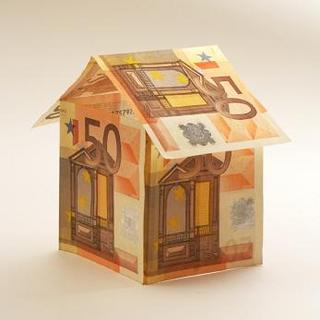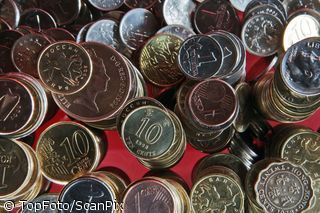The Investment Image program approved in August 2002 is aimed at increasing the country's investment rating and image
Published:
3 April 2003 y., Thursday
Foreign direct investment was very insignificant prior to 1994 at $100 million - $150 million a year. This then began to improve considerably and FDI in 1996 - 1998 was about $500 million - $700 million a year and continued growing.
Average annual foreign investment in the past three years was eight to ten times lower than in Kazakhstan, Hungary, Czech Republic, and Poland. Ukraine is close to last in Central and Eastern Europe in terms of per capita FDI, which is currently $111, nearly 10 times less than in Czech Republic, Poland, and the Baltic countries. The FDI index calculated by the United Nations Conference on Trade and Development (UNCTAD) each year places Ukraine 95th of 140 UN members (the index is a ratio of the share each country has in global FDI and its share in global GDP). This means that administrative bodies must pay closer attention to the country's investment appeal.
The country set up 11 special economic zones and nine priority development territories in the past three years that provide favorable conditions for foreign investors. The introduction of special conditions
investment in special economic zones and development territories reached nearly 7% of total foreign investment in Ukraine.
The Ukrainian president initiated efforts that dramatically improved the conditions for investing in the real sector. This included the introduction in the mid-1990s of perks for foreign companies and
agriculture. Ukraine also launched economic experiments in mining and metallurgy, shipbuilding, aircraft building, the cement industry, housing construction, the light and woodworking industries.
The investment appeal of industries began to improve after production stabilized and the economy began to grow. Almost all economic and social indicators have improved in Ukraine in the past three to four years: GDP, industrial output, agricultural production, production of consumer goods, and retail sales are increasing. This has helped create a favorable investment climate.
The Ukrainian president in early 2001 signed a decree on measures to attract investment to Ukraine that made this a priority. Another decree was signed that summer on measures to improve the investment climate that outlined tasks to simplify procedures and eliminate bureaucratic red tape in the registration of foreign investment. The government in December 2001 confirmed a program to develop investment in 2002 - 2010 and later confirmed measures to achieve this.
Šaltinis:
Interfax News Agency
Copying, publishing, announcing any information from the News.lt portal without written permission of News.lt editorial office is prohibited.
The most popular articles
 Both women and men have been hit by job losses in the downturn, says a new report adopted by the European Commission today.
more »
Both women and men have been hit by job losses in the downturn, says a new report adopted by the European Commission today.
more »
 Unemployed car and construction workers in Sweden, Austria, and the Netherlands will get €15.9 million in EU Globalisation Adjustment Fund aid for training, self-employment and professional orientation services under a plan endorsed by Parliament in plenary on Wednesday.
more »
Unemployed car and construction workers in Sweden, Austria, and the Netherlands will get €15.9 million in EU Globalisation Adjustment Fund aid for training, self-employment and professional orientation services under a plan endorsed by Parliament in plenary on Wednesday.
more »
 As the economy recovers, EU countries will need to phase out crisis measures. The question is when?
more »
As the economy recovers, EU countries will need to phase out crisis measures. The question is when?
more »
 The European Commission has endorsed, under EU state aid rules, a Polish scheme intended to compensate the Polish Post for net losses incurred in discharging its public service obligations between 2006 and 2011.
more »
The European Commission has endorsed, under EU state aid rules, a Polish scheme intended to compensate the Polish Post for net losses incurred in discharging its public service obligations between 2006 and 2011.
more »
 The European Commission reports good progress in the implementation of the Small Business Act (SBA) in 2009.
more »
The European Commission reports good progress in the implementation of the Small Business Act (SBA) in 2009.
more »
 The European Commission approved the first financing decisions in favour of eleven African and two Caribbean countries for a total of € 230 million, including € 215 million under the so-called Vulnerability FLEX mechanism (V-FLEX).
more »
The European Commission approved the first financing decisions in favour of eleven African and two Caribbean countries for a total of € 230 million, including € 215 million under the so-called Vulnerability FLEX mechanism (V-FLEX).
more »
 Legal measures to make it easier for people who have lost or risk losing their jobs to get credit to start up their own businesses were backed by the European Parliament on Tuesday.
more »
Legal measures to make it easier for people who have lost or risk losing their jobs to get credit to start up their own businesses were backed by the European Parliament on Tuesday.
more »
 How can companies and industry help to stop climate change? This is one of the questions on the table when Sweden’s Minister for Enterprise and Energy Maud Olofsson attends the climate change conference in Copenhagen on Monday and participates in a panel discussion organised by Businesseurope.
more »
How can companies and industry help to stop climate change? This is one of the questions on the table when Sweden’s Minister for Enterprise and Energy Maud Olofsson attends the climate change conference in Copenhagen on Monday and participates in a panel discussion organised by Businesseurope.
more »
 In a meeting held today in Brussels, the Gas Coordination Group, under the chairmanship of the Commission, has discussed with Russian Gas Company Gazprom the gas supply and demand outlook and investment strategy of the company in both Russia and the EU.
more »
In a meeting held today in Brussels, the Gas Coordination Group, under the chairmanship of the Commission, has discussed with Russian Gas Company Gazprom the gas supply and demand outlook and investment strategy of the company in both Russia and the EU.
more »
 The European Commission has approved under EU state aid rules the impaired asset relief measure and the restructuring plan of Royal Bank of Scotland (RBS).
more »
The European Commission has approved under EU state aid rules the impaired asset relief measure and the restructuring plan of Royal Bank of Scotland (RBS).
more »